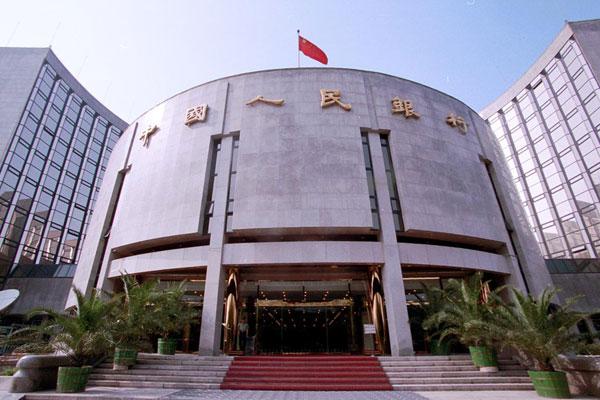Economists puzzled by state of economy
Updated: 2013-06-17 02:49
By CHEN JIA (China Daily)
|
||||||||
|
 |
|
The People‘s Bank of China, the central bank, plays a leading role in national economic development. The traditional economic growth pattern that excessively depends on investment increases the fast expansion of bank credit, when other financing channels are underdeveloped. Therefore, base money supply is driven incredibly high by surging credit, said Ji Zhihong, director of the research bureau of the People‘s Bank of China. Provided to China Daily |
There has been no sign of inflation spiraling out of control so far this year. In April, consumer prices increased by 2.4 percent from a year earlier. That was slightly higher than March‘s 2.1 percent but still much lower than the year‘s target of 3.5 percent.
The flat inflation figures are taken to mean by economists that policy makers may not aggressively tighten money supply in the near future.
Because of the increase in interest rate liberalization, money supply may not be used as the main tool in deciding the whole monetary policy mixture, but there will be more of a focus on interest rates, as the US Federal Reserve and the Japanese Bank undertake currently, Ji said. ”The monetary policy making process is in transition.”
Money supply is dependent on monetary multipliers and base money. Base money is the total of domestic credit plus foreign exchange reserves.
When the total of social financing jumped to a historical high by 160 percent from a year earlier in January and 58.2 percent in the first quarter, fixed-asset investment growth slightly increased to 21.2 percent in January and February, and then slowed to 20.9 percent in March.
Beyond all expectations, GDP growth during January to March slowed to 7.7 percent year-on-year from 7.9 percent in the last quarter of 2012.
It was a different picture four years earlier. Growth in total social financing picked up to 114 percent in the first quarter of 2009 and 121 percent in the second quarter, from 26.6 percent in the last three months of 2008. It led to a boost in fixed asset investment, which increased 28.6 percent in the first quarter from 26.8 percent in the fourth quarter in 2008.
In the same period, the official Purchasing Managers‘ Index rose to 52.4 from 41.2, indicating a fast recovery in manufacturing production.
That provided evidence that the marginal effect of monetary easing on the economy is decreasing compared with 2009, after the global financial tsunami.
”We believe a large part of the new credit supply in the first quarter did not go into the real economy,” said Zhang Zhiwei, chief economist in China at Nomura Securities Co.
It is partly because the underlying demand for investment is weak, he added.
”The overcapacity problem in the manufacturing industry has been exacerbated by aggressive policy easing in 2009 and 2012.”
Liu Ligang, chief Chinese economist with the ANZ bank group, said: ”Overly loose credit is likely to exacerbate overcapacity in factories. Economic growth cannot rely on monetary easing any more.”

 Michelle lays roses at site along Berlin Wall
Michelle lays roses at site along Berlin Wall
 Historic space lecture in Tiangong-1 commences
Historic space lecture in Tiangong-1 commences
 'Sopranos' Star James Gandolfini dead at 51
'Sopranos' Star James Gandolfini dead at 51
 UN: Number of refugees hits 18-year high
UN: Number of refugees hits 18-year high
 Slide: Jet exercises from aircraft carrier
Slide: Jet exercises from aircraft carrier
 Talks establish fishery hotline
Talks establish fishery hotline
 Foreign buyers eye Chinese drones
Foreign buyers eye Chinese drones
 UN chief hails China's peacekeepers
UN chief hails China's peacekeepers
Most Viewed
Editor's Picks

|

|

|

|

|

|
Today's Top News
Shenzhou X astronaut gives lecture today
US told to reassess duties on Chinese paper
Chinese seek greater share of satellite market
Russia rejects Obama's nuke cut proposal
US immigration bill sees Senate breakthrough
Brazilian cities revoke fare hikes
Moody's warns on China's local govt debt
Air quality in major cities drops in May
US Weekly

|

|








